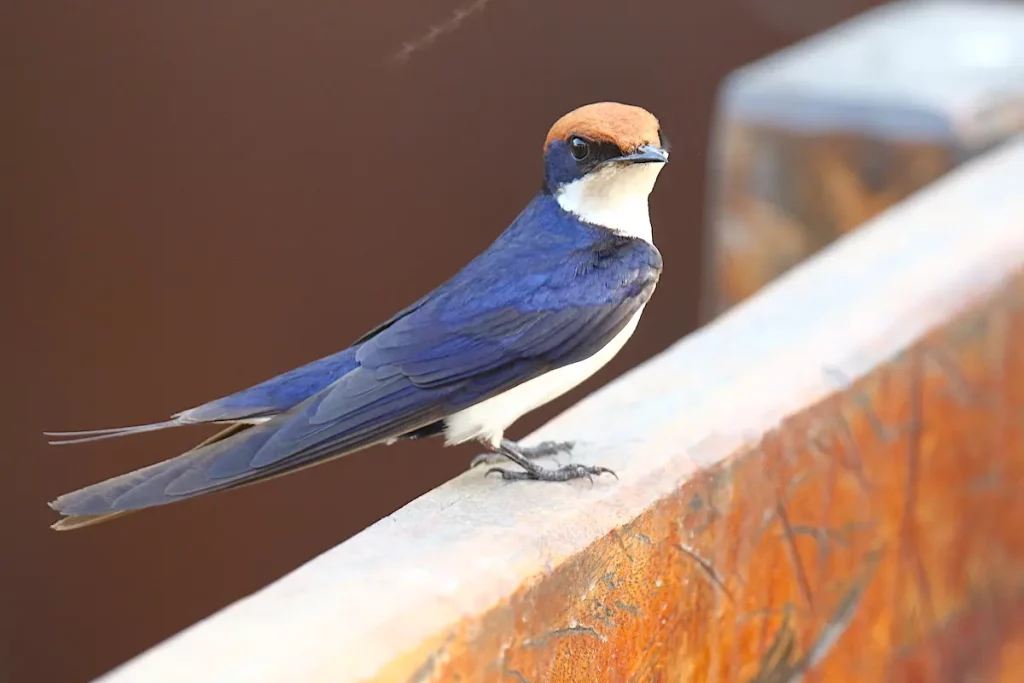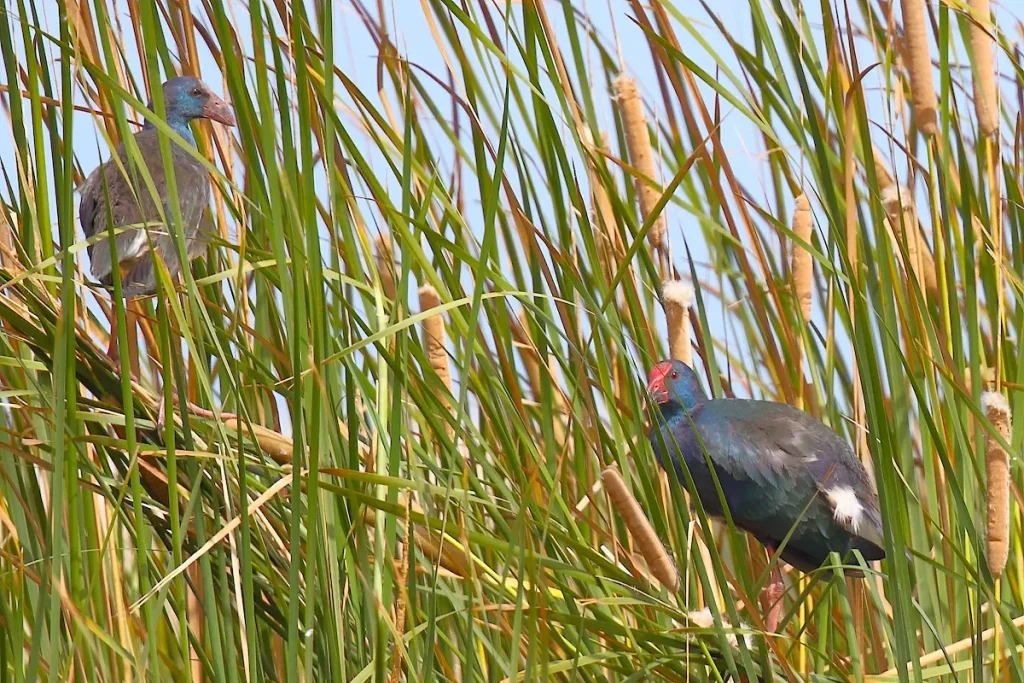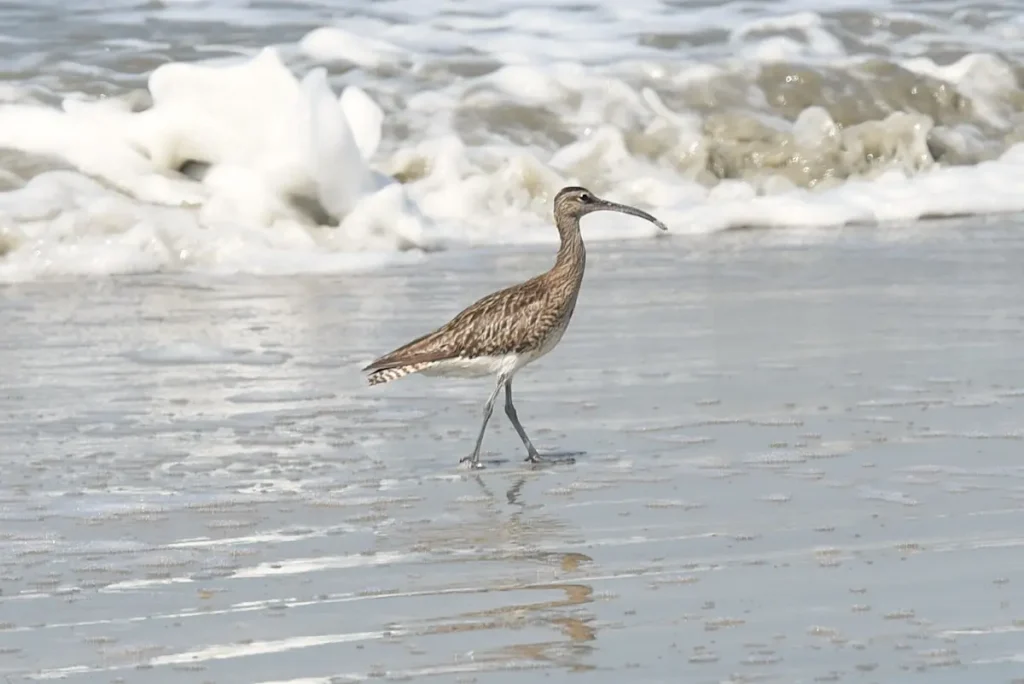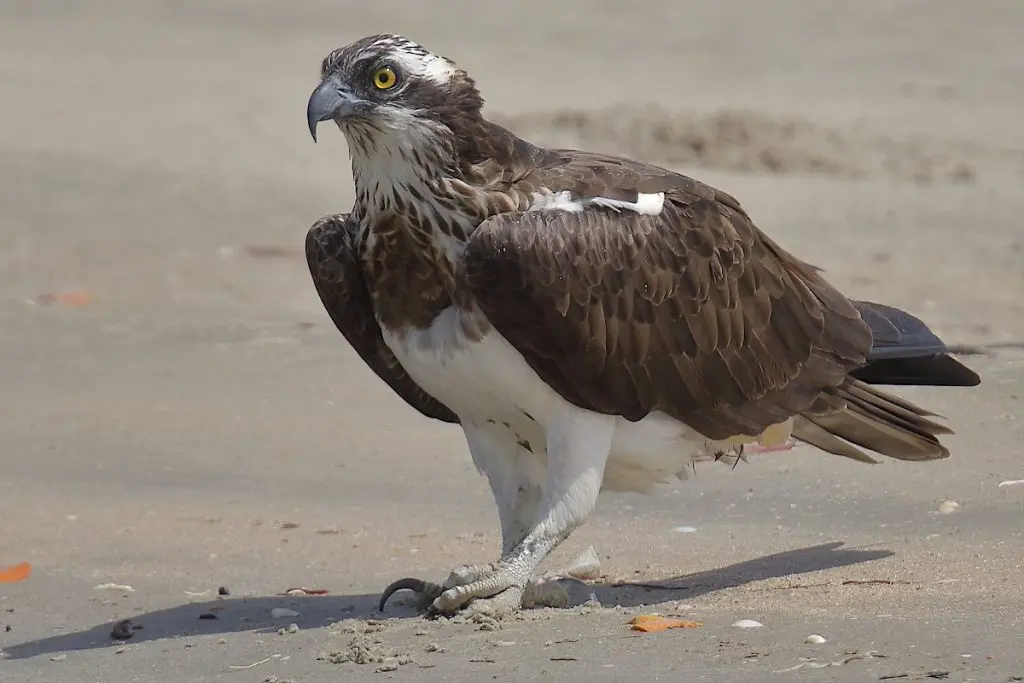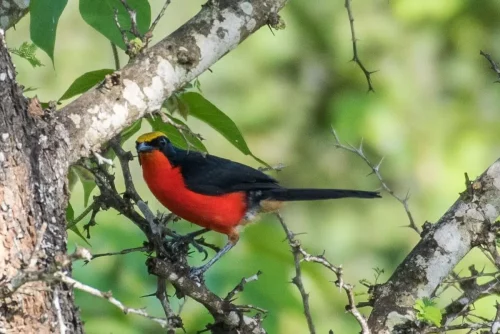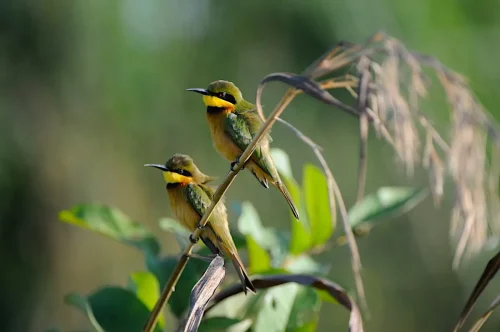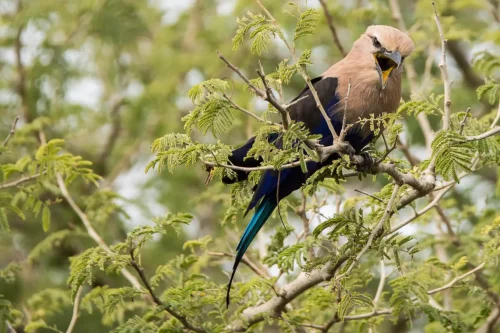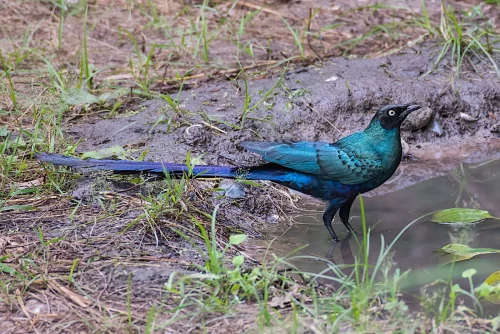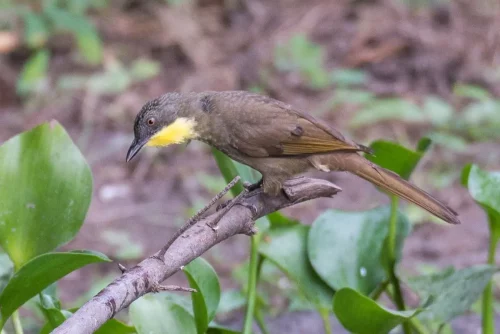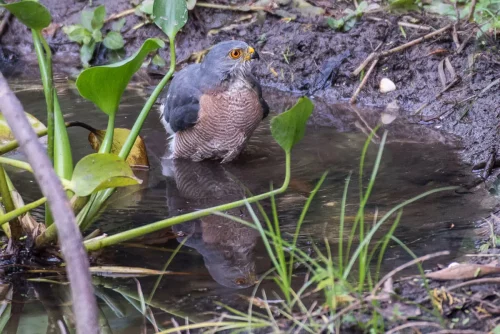The Gambia is the smallest country in Africa, but despite that, it’s a great country for birds, as it has a wide range of habitats in a relatively small area.
Footsteps is an ideal base for exploring the coastal region.
If you visit in or around February, as I have, it’s likely that one of the first birds you encounter will be the Wire-tailed Swallow, which nests just above the reception desk.
When not busy catching insects, one of the parents may chill out with you on the wooden deck upstairs, like this one.
Kartong birding observatory
A short drive away is the Kartong Birds Observatory, wetlands and coastal reserve, where over 350 species of birds have been recorded – some resident, and some winter visitors and passage migrants. One of the residents is the beautifully coloured Purple swamphen. If you’re very lucky you may also see its rarer relative, Allen’s gallinule.
Kartong is close to the border with Senegal, which is marked by the River Allahein. You can hire a boat with a local birding guide (I recommend Solomon) and do a trip along the mangrove-clad river towards the coast. Your guide also powers the boat – there is no engine to disturb the birds.
Here, you can see a variety of waders and terns; and other species, including Ospreys and kingfishers. It’s customary to land on the opposite side of the river. There you can order une biere at a peaceful, well-shaded bar in Francophone Senegal.
That also gives your boatman a chance to recover before he powers you back up the river to where you started.
Birds from Europe
Birds like Ospreys, Whimbrels and Greenshanks are winter visitors from Europe. Yes, you could see them in Europe, but here you’ll almost certainly get closer to them while on the boat. I’ve never seen so many Ospreys, on one occasion I could see seven at the same time on exposed mudflats.
One of the most colourful species of the Gambia is the Yellow-crowned Gonolek, which is quite common. You’re likely to see it at Footsteps is you’re patient and keep your eyes open. Another iconic species of the Gambia is the Blue-belled roller, one of several species of roller that can be seen there. This is also quite common and can be seen not far from Footsteps.
Outside of the rainy season, this part of the Gambia, with its sandy soils, can get quite dry. So putting out water for birds, which they can use for drinking or bathing, can attract a lot of species. Footsteps have a unique eco-pool that attracts flycatchers, bee-eaters (including the green bee-eater) and occasionally Pygmy kingfisher.
Marakissa
If you visit Marakissa River Camp, for a day or half-day, you’ll see a wide range of species attracted to the bowls of water there, including Purple glossy starling and, if you’re lucky, Yellow-throated leaflove. And from their photography hide, you might see a Shikra – a kind of sparrowhawk. You can also do a boat trip there, where species differ somewhat from those found along the estuarine River Allahein.
Whatever time of year you go you’re bound to see a great variety of birds, many of them very colourful. Enjoy!
Written by Czech Conroy, see his wildlife photography website and join his fans on Facebook.

